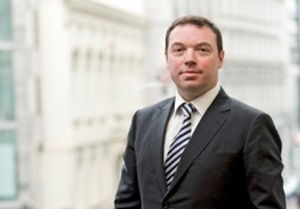FMA to KiwiSaver providers: We are getting impatient
KiwiSaver providers have been told they must do better, as the amount they earn in fees soars.
Thursday, October 5th 2017, 6:00AM
by Susan Edmunds

Financial Markets Authority chief executive Rob Everett says KiwiSaver has now reached the size where providers might be able to trim fees, but that is not happening, and providers must do more to engage their members.
The regulator has released its latest KiwiSaver report, which shows total assets were up $7 billion from $33.8b in 2016. Investment returns of $2.7b were more than double those of 2016, and are close to the previous record $3b, reported in 2015.
The average management fee per member was $97.82, up from $84.15 in 2016, reflecting an average balance of just under $15,000.
The average administration fee was $30.30. Investment management fees charged by providers rose 21.3% year-on-year from $219.5 million to $266.3 million.
Everett said if a service being provided or the returns were being generated that reflected an investment providers were making, the FMA might be more sanguine about rising fee revenue.
“But we are not sure we are seeing that, and the statistics on member engagement suggest not.”
The report showed low levels of engagement with members of default funds.
Providers are asked to report quarterly about how they engage with default members to encourage them to actively choose an investment and the number of members who took the opportunity to make that choice.
For four of the nine default KiwiSaver providers, the percentage making an active decision fell between 2016 and 2017. All reported fewer than 10% of default members making an active choice.
Everett said providers needed to put more focus on making sure people were "not just sat there”.
“We are getting somewhat impatient on that front,” Everett said.
He said he hoped the advice KiwiSaver members was getting was improving. The FMA has revised its guidance on KiwiSaver advice, in a move to try to make it easier for providers to offer information to their members. Some had reported that the guidance was getting the way of answering client questions.
He said some providers had reported immediately rewriting their training material and guidance for staff to enable them to be more helpful to members seeking information.
It has also partnered with KiwiSaver providers on field trials to see if behavioural insights could help them better connect with members.
Everett said the FMA was keen to ensure that when people transferred to a new provider, or joined for the first time, they were getting good information and guidance.
KiwiSaver being packaged up with other products was something the FMA was wary of, he said.
For the second year in a row, the number of transfers, 172,017, is higher than new members joining, 154,531.
Everett said: “We understand that engaging with default members can be difficult. But the lack of progress in this area by the default schemes is disappointing. Especially when the income from fees paid by default members has increased to $31.5 million, and providers still seem to have little trouble engaging other providers’ members to get them to transfer.
“We have written to the chief executive of each default provider, seeking their commitment to meet their obligations to their default members. At the very least, we expect them to deliver on what they said they would do in their tenders to the Government seeking default status. Or, if they have tried that and it didn’t work, to try something more effective.”
Everett said it had been a good year for KiwiSaver members, with strong market returns combined with Government and employer contributions boosting balances.
But he said people needed to realise it was a long-term investment and not make knee-jerk decisions if markets hit weakness.
| « No need to open KiwiSaver to finance companies: AMP | Work on incomes, global pension report says » |
Special Offers
Comments from our readers
No comments yet
Sign In to add your comment
| Printable version | Email to a friend |


